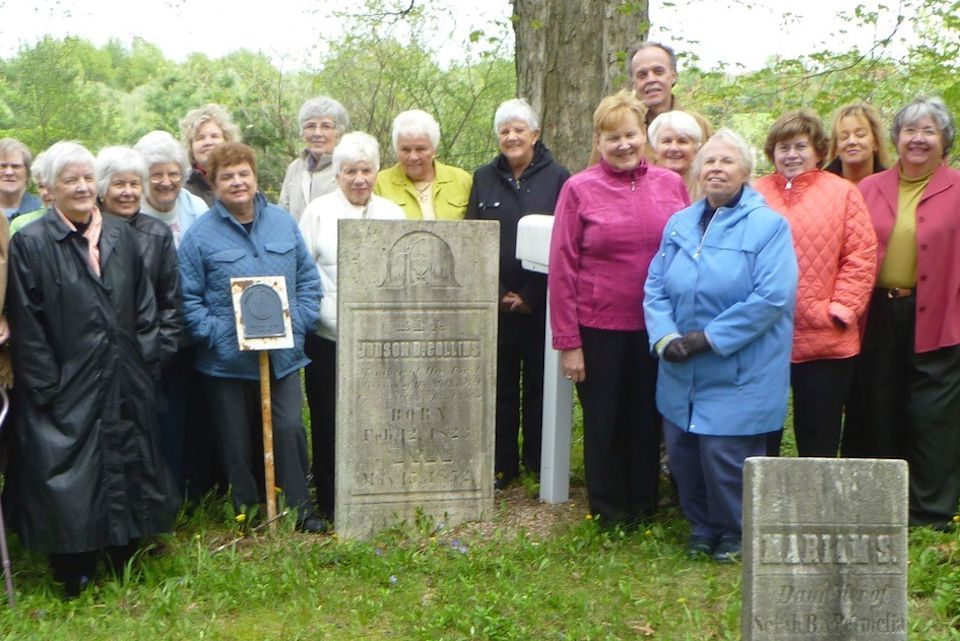In the Michigan Conference of the United Methodist Church, dedicated individuals and organizations are chronicling history for our benefit.
GLENN M. WAGNER
Michigan Conference Communications
History matters. Like a good map that helps us remember where we have been and offers clear direction to future travelers, history can help us find our way. Please take a few minutes to consider the importance of history and learn how Michigan United Methodists are helping us to collect, archive, and retell our important stories.
History is all around us. Invite a friend to share pictures from her cell phone, and as she tells you about the images, she will be sharing personal history. Visit a neighbor and ask about the interesting artifact on the mantle, and you are likely to receive a treasured peek into his past. Manage the final disposition of a departed loved one’s documents and possessions, and you will be making the decisions facing every historian, “What should be kept? What can be recycled? Who should I share this with? How can this be remembered? This is too important to throw away; how am I going to continue to honor this memory?”
In a testament to the global importance of history, consider that over 31% of the world’s population professes to be Christian, 2.4 billion people honoring a faith that is over 2,000 years old. Remember that Jesus and his first disciples were Jewish. Almost 15 million people still practice this oldest of the world’s monotheistic faiths after 4,000 years. Another 25% of the world affiliates with Islam, 1.9 billion people observing a faith that dates back to the 7th century. Fifteen percent of the world, 1.2 billion people, align with Hinduism, also a 4,000-year-old religion. Five percent of the world’s population, 470 million people, call themselves Buddhists, a religion that is 2,500 years old. In total, 76% of the world’s current population is influenced by at least one of these five major religions that have been remembered, transmitted, and personalized across many generations. We are all beneficiaries of the vital work by persons who give of their time and talent as archivists and historians so that our faith in ages past continues to influence our present and inform our future.
In the Michigan Conference of the United Methodist Church, dedicated individuals and groups chronicle history for our benefit. The website for the Michigan Conference Archives states the reason for preserving our history.
The archives maintain the records created by the Michigan Conference of the United Methodist Church (and the former Detroit and West Michigan Conferences) and its member churches. We collect and preserve historical information of the United Methodist Church in Michigan and all its predecessor denominations to document Methodism in Michigan. Our mission is to maintain all items of enduring value, to promote their use for research, and to encourage and assist local churches in managing and preserving their records to document church history.
We can be grateful for the continuing efforts of two part-time archivists employed by our Michigan Conference working in spaces provided by our Michigan United Methodist colleges, Adrian and Albion, to receive, catalog, store, and digitize church records.

Rebecca McNitt, our Michigan Conference archivist at Adrian College, explained, “Many of the documents we house are received when churches close. They are records of births, deaths, marriages, and baptisms. In addition, they include church meeting minutes, photographs, and often copies of church histories written by local historians.
Occasionally we inherit and keep important artifacts like a painting of Rev. Merton S. Rice, who served as Senior Pastor of Detroit Metropolitan from 1913 (when it was North Woodward Methodist Episcopal Church) until he died in 1943. Under his leadership, Detroit Metropolitan Church was the largest Methodist Church in the United States.
The archives are also home to the historic Conference canes passed down for generations between the longest-serving and the oldest surviving clergy members of the Detroit and West Michigan Annual Conferences. The cane for the oldest surviving clergy member of the Michigan Conference is now held by 99-year-old Rev. Joseph Ablett, who served for 35 years as a clergy member of the Detroit Conference. The recipient now receives a plaque representing the honor while the canes are preserved for safekeeping in the archives.
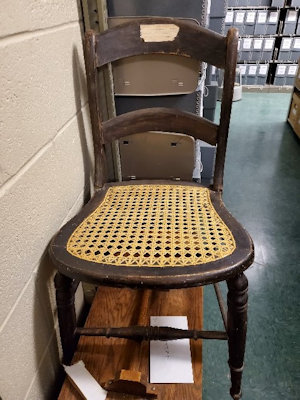
Rebecca says, "We also preserve a chair once belonging to the church where Judson Collins, an early Methodist missionary from Michigan to China, was converted.”
Rebecca noted that Conference Journals are an often-used resource of the archives. Conference Journals for the Michigan Area Annual Conferences for every year since 1836 are being digitized and made available for free internet access, as are the journals of predecessor denominations.
Rebecca, the daughter of two professional archivists, came by her interest in this work naturally. She has a bachelor’s degree from Albion College and a master’s degree in library and information services from the University of Michigan. She is a part of West Side United Methodist Church in Ann Arbor.
Rebecca has observed that the archives are sometimes consulted by pastors preparing to move to a new appointment seeking to learn more about the history of their new parish. Congregations find the archives valuable when gathering information to share with others, particularly around important church anniversary celebrations. In addition, requests for research help are received from individuals looking for confirmation of personal information concerning baptisms, deaths, and marriages, particularly when their former church has closed.
The archives maintain a useful online toolbox with helpful resources for pastors and local church historians who want to know what local church records should be kept and how to preserve them.
Church historians find the archives helpful when researching predecessor United Methodist denominations like the Evangelical, United Brethren, Evangelical United Brethren, and Methodist Protestant Churches. In addition to information and records preserved for local churches and pastors, the archives also maintain important historical records for our District and Conference offices.
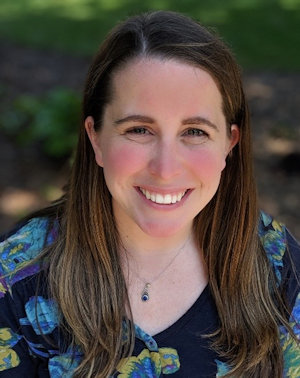
Elizabeth Palmer is the part-time archivist for the Michigan Conference, working primarily with the collection of archival material from the West Michigan Conference that is currently housed at Albion College. Elizabeth also works in a similar capacity as the archivist for Albion College. Raised at First United Methodist Church in Holland, Elizabeth graduated in 2010 from Albion. She earned a master’s degree in historic preservation and some valuable experience working with university archives at Eastern Michigan University in Ypsilanti. Elizabeth enjoys helping people find important information during their historical research by facilitating visits to the archives or doing research and sending digital documents to persons unable to come to Albion. She loves organizing the collections of archival material received and values that she is continuously learning new things about people, history, preservation of documents, and the church.
When asked her opinion about whether historical documents should be digitized or maintained on paper in the original, Elizabeth shared her experienced wisdom that both are important. However, she noted that digital files could become corrupted and need to be updated before becoming obsolete with computer programming and equipment changes. “For example, there are floppy disc drives that still can be used on computers. However, when you try to open up the files from the floppy disc on a newer computer, there's no way to open them because the files haven't been updated in 20 years.” She further observed, “Digital files of great works like Leonardo Da Vinci’s painting the Mona Lisa exist and are greatly appreciated. Virtual files make the painting much more accessible to the world. However, there is still something important and irreplaceable to lovers of art about being able to see the original in the Louvre Museum, in Paris.”
Elizabeth and Rebecca are focused at the moment on archival priorities to process and catalog recently received over-flow archival materials currently being stored in Conference Center North at Clark Corners in Lansing. They are also working to help the Commission on Archives and History pursue its dreams of creating a new unified archive. In addition, they are in partnership digitizing important archival records. All that while helping fulfill the continual requests for their archival help with research projects as they occur.
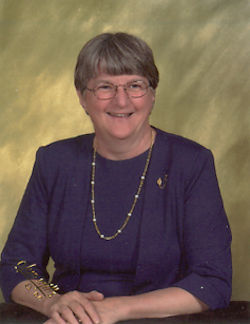
Diana Spitnale Miller is another of the passionate leaders in the Michigan Conference working to preserve and share our history effectively. Diana is currently the President of the Michigan Area United Methodist Church Historical Society, a Michigan Conference Commission on Archives and History member. In addition, she serves as the secretary for the General Commission on Archives and History for our United Methodist denomination. She is also a past chair of the Detroit Conference Commission on Archives and History and attends Gladwin: Wagarville Community United Methodist Church. Her family instilled Diana’s love for the history of the church. She grew up as a child of a United Methodist clergy and married Rev. Duane Miller, who has served as a pastor and a District Superintendent in the Detroit Annual Conference.
Diana is excited about the Historical Society's work, which recognizes important local church anniversary celebrations with the awarding of certificates. She notes that Dearborn First UMC, Detroit Central UMC, Mount Clemens First UMC, Monroe St. Paul’s UMC, and Birmingham First UMC are the oldest Michigan United Methodist churches. Each of these congregations has been serving Christ in ministry for over 200 years.
About 100 more Michigan United Methodist congregations have surpassed a century of effective ministry in their communities.
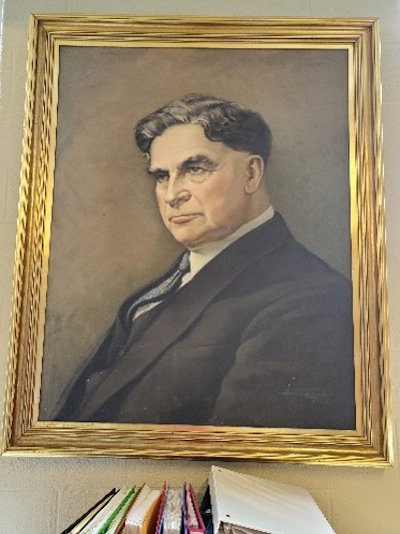
Many of our Michigan UM congregations are located strategically near the centers of their towns and cities. They are still actively engaged in making disciples and changing lives in positive ways for Jesus. It is also noted that the archives maintain a list of the eight officially designated United Methodist historical sites.
Diana notes that another important role of the Michigan Area United Methodist Church Historical Society has been to encourage local church historians to write and publish the histories of their own local United Methodist congregations. Copies of these histories are always welcome additions to the Michigan Conference archives.
The Michigan Area United Methodist Church Historical Society is affiliated with the Michigan Conference Commission on Archives and History but maintains its own website and has been holding annually in the spring “Roots and Branches” convocations (via Zoom during the Covid-19 pandemic) for mutual sharing and learning by persons “interested in studying and preserving the history of the United Methodist Church in Michigan!”
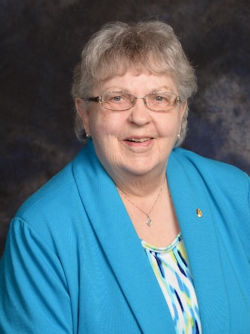
Mary Whitman, a retired public school librarian from Saginaw and Saginaw First United Methodist Church member, is the current chair of our Michigan Conference Commission on Archives and History. Mary is glad that this commission, which has been meeting four times a year, has honored the significant contributions of women and minority clergy serving in pastoral and ecclesiastical leadership in our Conference.
Mary remembers the earlier years of her service in the church when most of the leadership positions in the church were filled by white male clergy. Mary also recalls the important history lesson she received in a conversation concerning our denominational history when she referred to it as “Methodist” history and was reminded by a colleague that the “United” in our denominational name gives witness to our historic union with the former Evangelical and United Brethren branches of our church in 1968 representing important German roots to our denominational heritage.
Mary is also appreciative of the valued ethnic diversity of Michigan congregations. She is excited about plans being formulated for a North Central jurisdictional convocation on Archives and History that has been postponed by the pandemic but is being planned for next year in the vicinity of Iron Mountain in the Upper Peninsula, where participants will have the opportunity to learn first-hand about some of Michigan’s historic Native American and immigrant congregations. Persons interested in serving on the Conference Commission on Archives and History are invited to contact Mary Whitman at her email address.
In addition to their ongoing work to collect, preserve, and share important records, the Commission on Archives and History has been meeting with Rob Long, a representative of the Michigan United Methodist Conference Board of Trustees and a member of Chelsea First UMC. Long has professional expertise in corporate real estate management and development and academic interest in biblical studies and interpretation. Rob assists the commission on behalf of the Michigan Conference Trustees to evaluate current practices, assess future needs, and help formulate future plans for the Michigan Conference Archives.
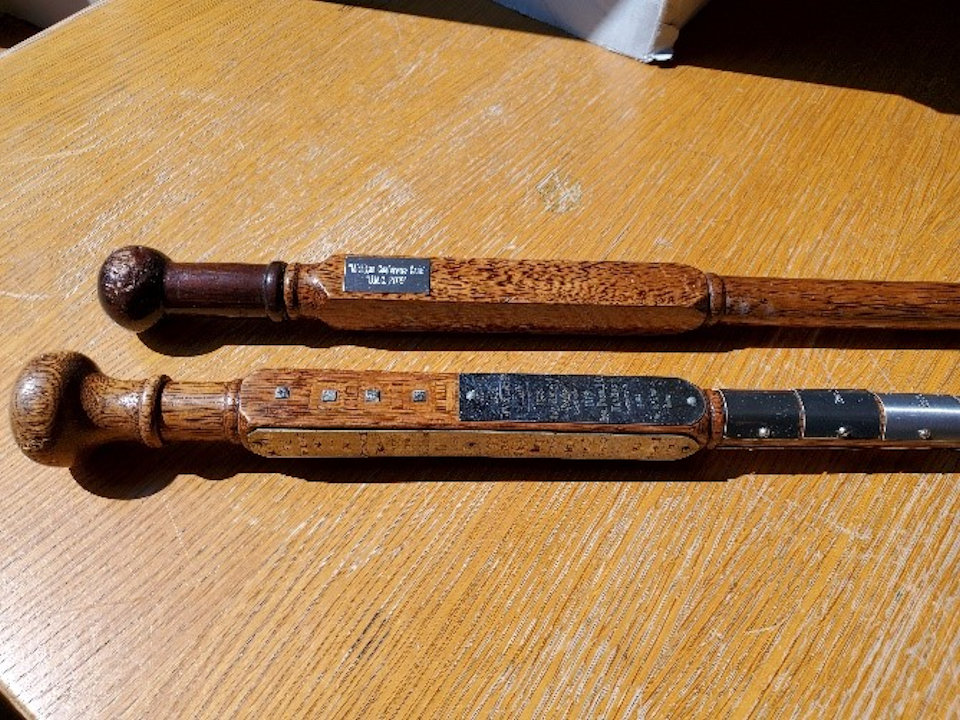
The Commission on Archives and History dreams of having a single unified archives location with ample space for storage, meeting, education, and display purposes managed by a full-time Michigan Conference archivist. Part of this long-range planning also involves determining which archives need to be kept in paper format and which can be digitized to realize savings in space and benefits in record accessibility online. Currently, our archives exist in three locations. Adrian College houses archives from the former Detroit Conference. Albion College houses archives that are primarily from the former West Michigan Conference. Newly rented space at the Michigan Conference offices at Clark Corners near DeWitt, Michigan, is warehousing the accumulating overflow of archival material that is largely being collected in boxes from recent church closings. These scattered arrangements are not efficient, and the consensus of the Commission on Archives and History is that continuing with the multiple-site status quo is not the best long-term solution.
Preserving church history is important because, like the gospels about Jesus, the letters of Paul, and other scriptures, history continues to inspire new disciples and impact our world in positive ways for God. The transformative power of God working through disciples of Jesus is an important part of our remembered history.
Thank you to our United Methodist Church historians and archivists for their diligent efforts to help us all remember. Thank you to faithful disciples for continuing to serve Christ in ways worthy of remembering. History matters. It reminds us that life is a gift to be cherished.
Last Updated on December 8, 2023

